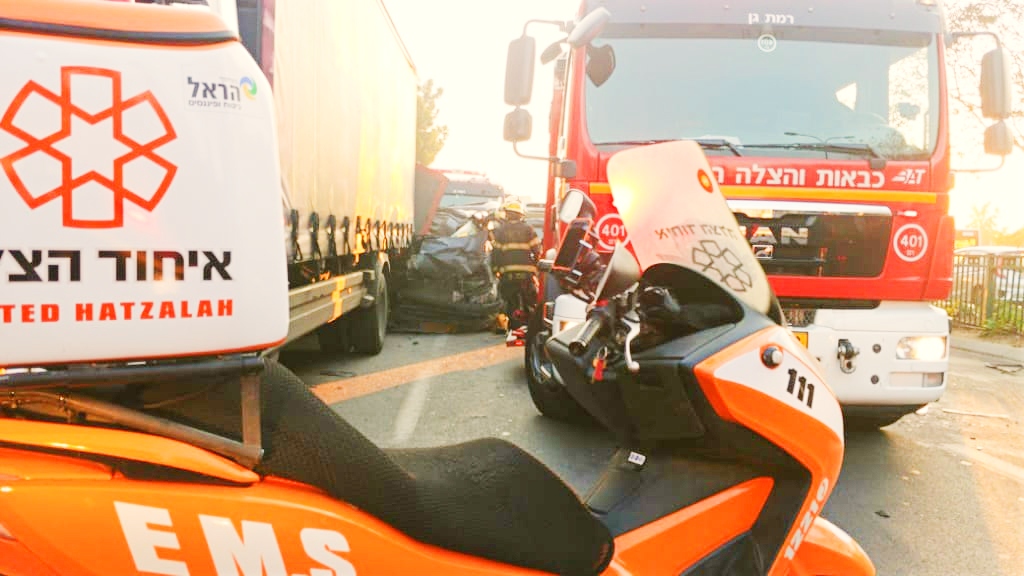
Israel Seen Exclusive – Treating Each Person As Their Own World
United Hatzalah volunteer EMT Betzalel Sabag lives in Rehovot with his family. Betzalel works in an office in Ramat Gan near the Aluf Sadeh interchange. One recent Sunday morning, traffic across the center of the country was at a crawl. Betzalel said that “As I was heading to work, traffic felt as if the entire country was at a standstill.”
At approximately 6:30 a.m., a minivan carrying eight construction workers crashed at high speed into a truck on Aluf Sadeh Road in Ramat Gan. Despite the early hour, Betzalel had already arrived at work and was just sitting down at his desk when dispatchers notified him of the accident. He immediately ran out of the office to his ambucycle, jumped aboard and raced to the given address. Sirens wailing, he was able to cut through traffic effortlessly on his ambucycle. The traffic had come to a complete stop in the wake of the accident. In spite of that, it took Betzalel just a few minutes to arrive.
The fire department’s special rescue unit was already on scene and had begun extricating the trapped workers from the decimated vehicle. Together with additional arriving EMS personnel, Betzalel assessed and treated the passengers’ wounds as they were released from the minivan. Most of the men had sustained bruising to their head and chests and Betzalel suspected that they may be suffering from internal injuries as well. The team of EMTs immobilized the victims to prevent the exacerbation of their injuries. With the arrival of the first ambulances 10 minutes later, the injured workers were loaded aboard the emergency vehicles for rapid transport to the nearby Sheba Medical Center.
Relatives of the injured passengers arrived at the scene of the accident overcome with worry and panic. Betzalel, who also serves as part of United Hatzalah’s Psychotrauma and Crisis Response Unit, is trained to provide psychological first aid in addition to his ability to provide regular medical first aid. The caring EMT reassured the concerned relatives that their family members were all in stable condition. He shared numerous simple yet effective techniques for mental and emotional stabilization with them to help them process the frightening incident.
“I must always keep the proper perspective. While I respond to medical emergencies frequently, for the people I treat and their family members, this was their whole life. Everything could have been different in an instant. Therefore, I cannot allow these situations to become routine. I have to treat each incident separately and help the people involved with what they need. Each person is their own unique world. I am thankful that I was able to provide treatment quickly both to the injured and to their worried family members and help them through this difficult and fearful process.”








